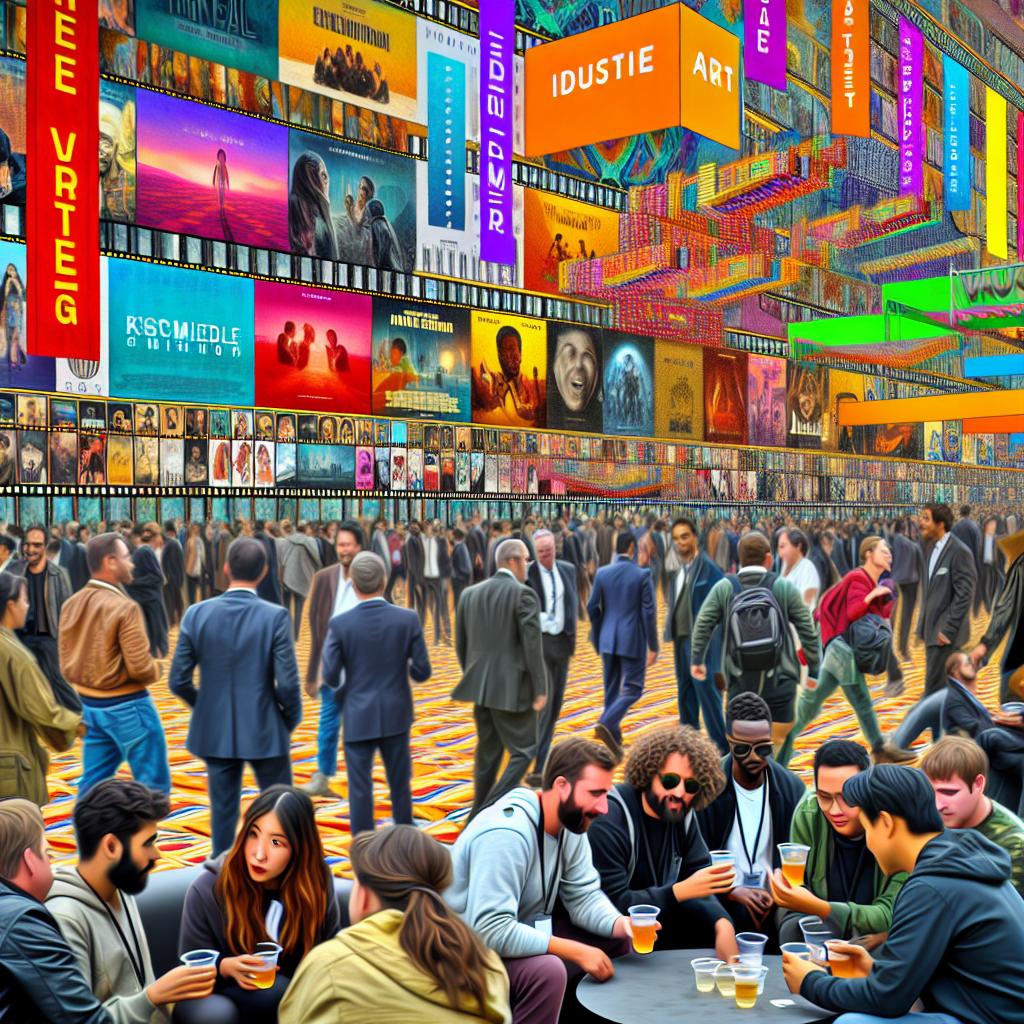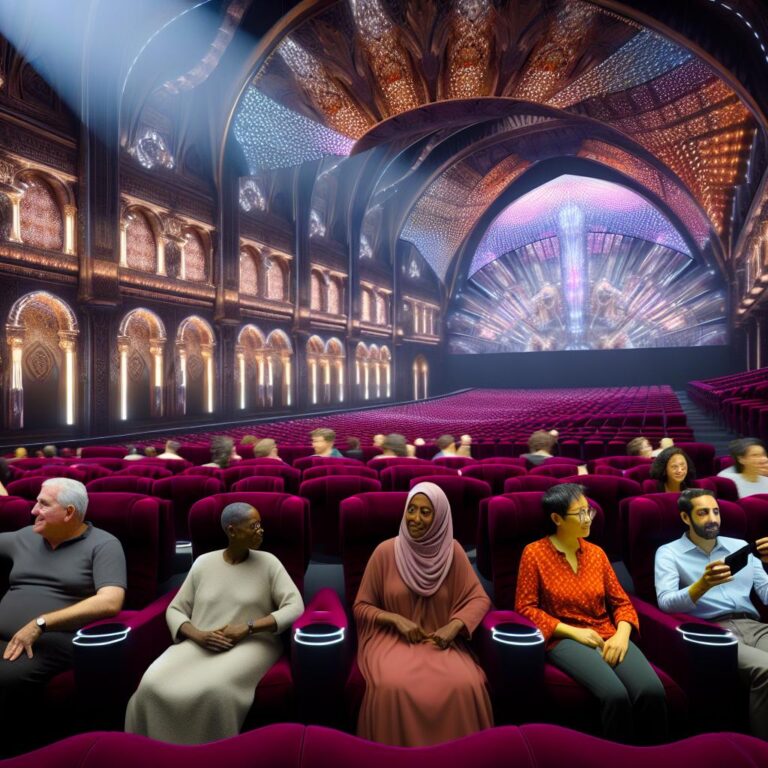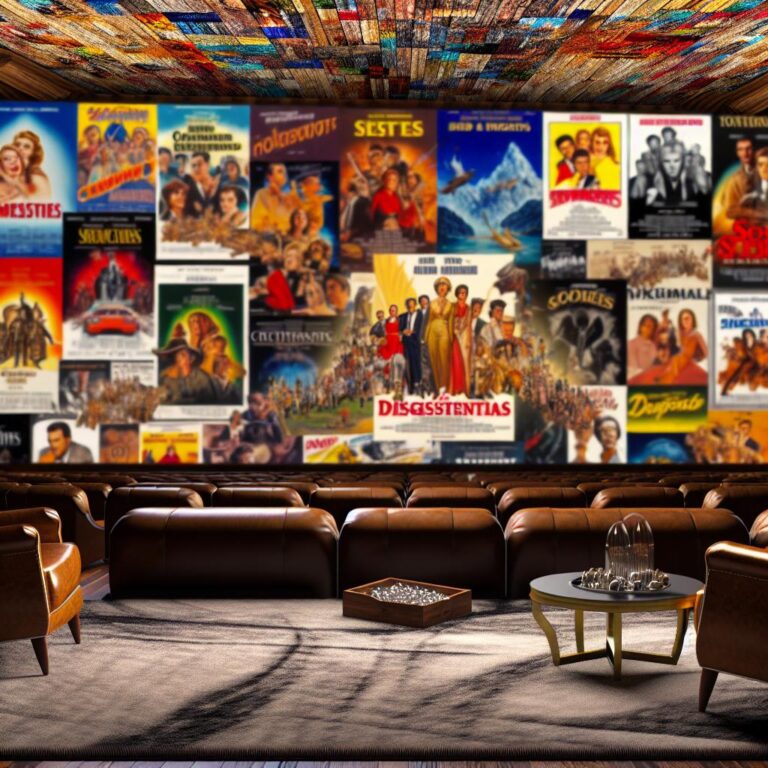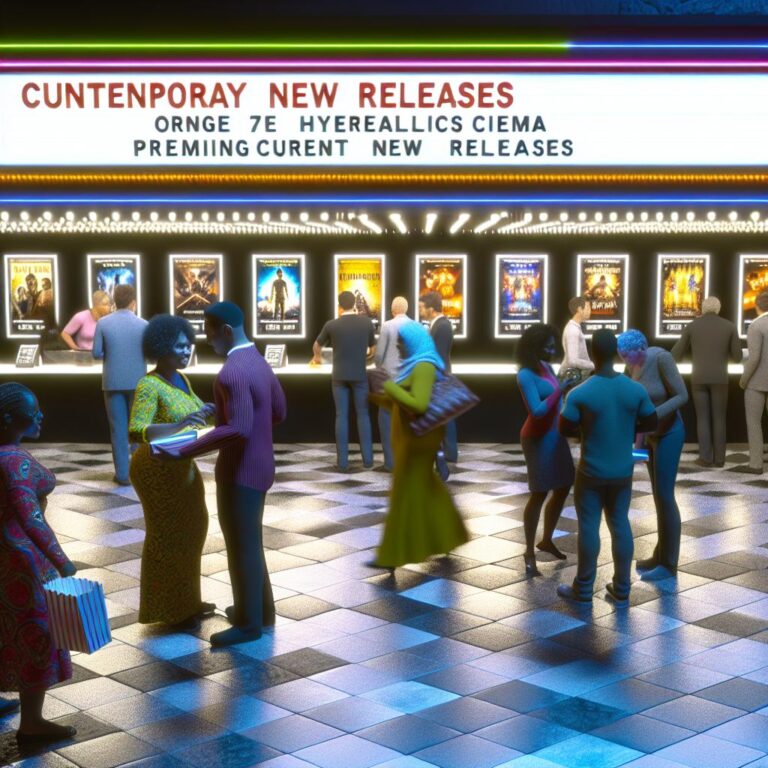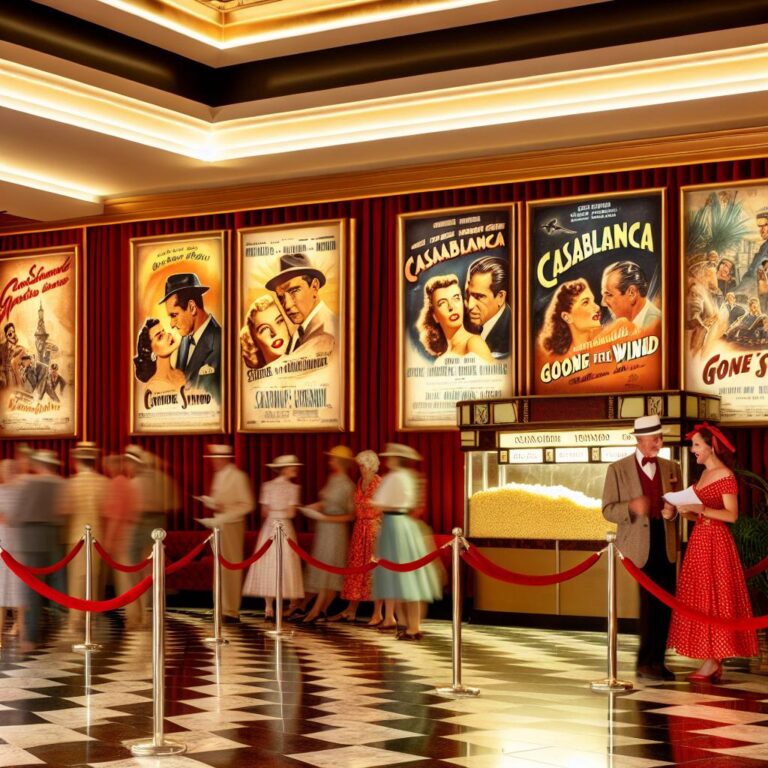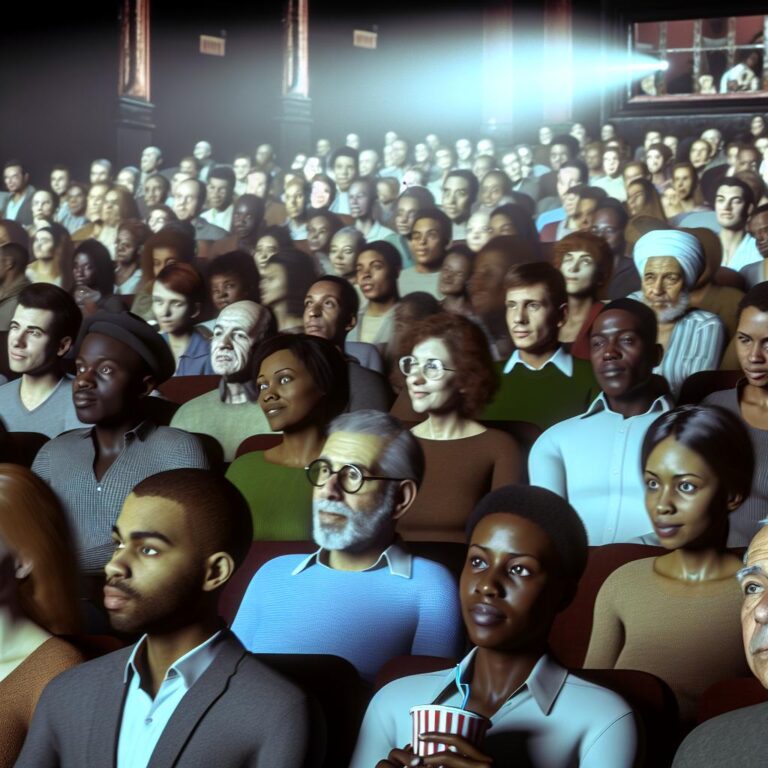Film Festivals: How Do They Shape Industry Trends?
- Prestigious film festivals boast history, selective film choices, celebrity presence, and media coverage.
- Cannes and Venice are notable for their historical significance; Cannes began in 1946 and Venice in 1936.
- Selectiveness boosts prestige: Cannes screens 70 out of 2,000+ submissions.
- Stars like Robert De Niro add allure, enhancing media and global audience visibility.
- Media coverage determines a festival's industry respect and buzz.
- Festivals nurture industry-community ties; Austin Film Festival emphasizes screenwriting.
- Specialized festivals like Fantasia (sci-fi/fantasy) gain prestige within niches.
- Sundance and Toronto focus on storytelling and artistic innovation.
- Festivals influence industry trends, including tech incorporation and reflecting diversity.
- Festivals like Cannes and SXSW set trends, embrace tech, and shape future cinema practices.
Film festivals can lead the charge in shaping industry trends and creative visions. As a stock market finance nerd with an eye on cultural eddies, understanding these gatherings opens doors to the next wave of trends. Festivals like Cannes (check it out here) don't just screen films; they create ripples in design, gaming, and beyond. Join me to unravel how film festivals mold trends that define what's next.
What Makes a Film Festival Prestigious?
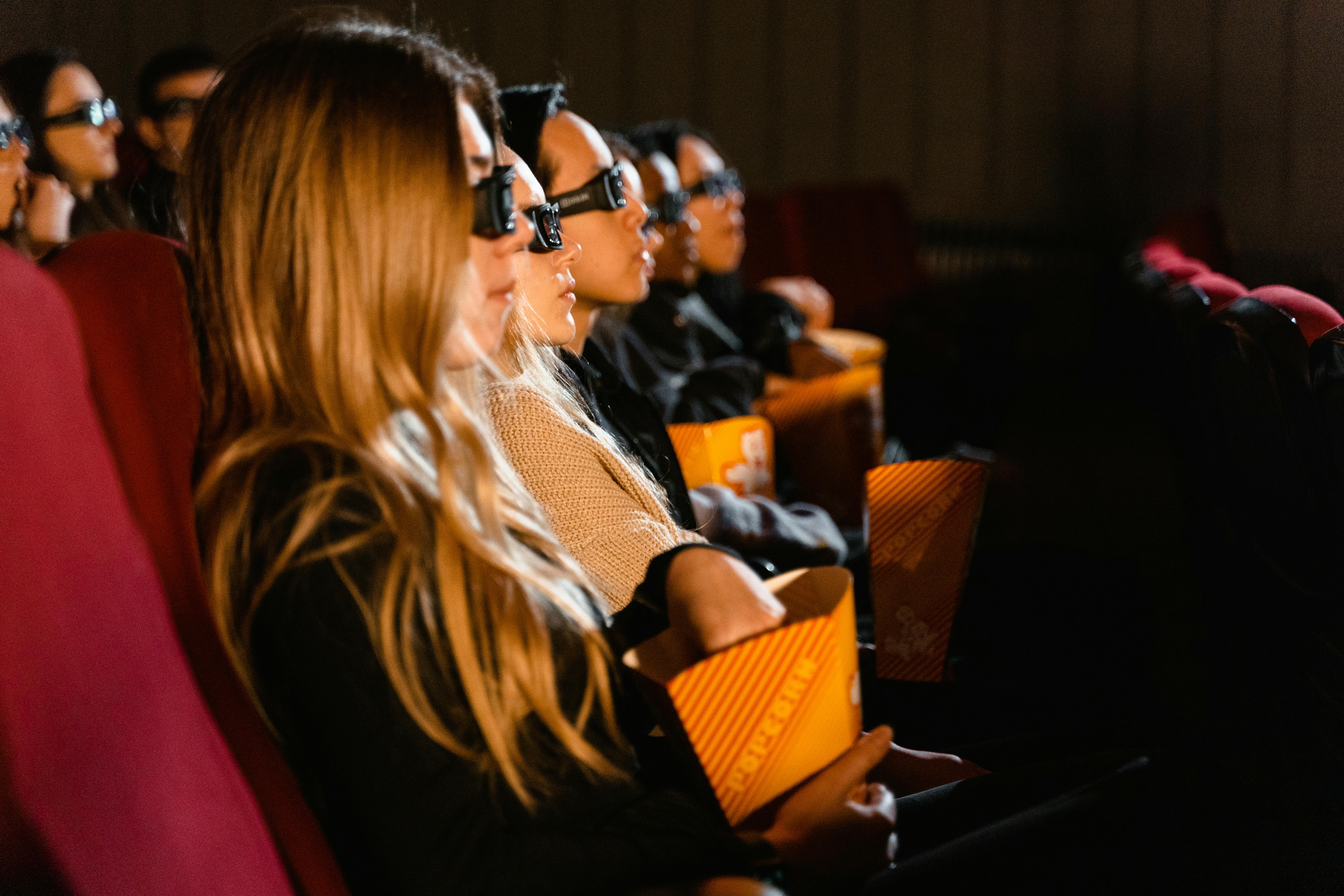
Prestige in film festivals is like a badge of honor. It’s a blend of history, the films they show, and the stars they draw. Some festivals, like Cannes and Venice, stand out. Their history roots deep in film lore, with Cannes starting in 1946 and Venice holding its first event ten years earlier. This historical significance gives them unmatched gravitas. These festivals have seen decades of cinema evolution, setting benchmarks for all others.
Film selection plays a key role in establishing prestige. Not every movie gets a chance to play at a top fest. Cannes shows only about 70 films out of more than 2,000 submissions. This selectiveness flags the chosen few as extraordinary. A film premiering at Cannes or Venice often guarantees it a promising trajectory. Filmmakers dream of their work getting into Sundance or Toronto because these festivals focus on compelling storytelling and artistic innovation. Toronto, for instance, debuted "The Fabelmans," making it pivotal in the film's journey.
Celebrities amplify a festival’s allure. Their star-power draws not just media, but also industry insiders. Think of the glitz when Robert De Niro walks the Tribeca red carpet. It adds a spotlight on films that few other platforms can. A festival with high celebrity presence often sees increased media visibility. This attention helps in elevating films to an international audience, boosting their success post-festival. Celebrity photos, interviews, and appearances dominate headlines, positioning the festival as the season's must-follow event.
Media coverage also significantly impacts prestige. The more buzz a festival generates in the press, the higher its profile becomes. Big festivals like Berlin and Sundance usually receive extensive media attention, translating into industry respect. The Berlinale, hosting a suite of events like the European Film Market, channels a lot of European cinema focus. This media-rich environment feeds industry dialogue and draws attention to emerging trends and talent.
Moreover, a prestigious festival often nurtures its surrounding community and industry. Austin Film Festival, for example, emphasizes screenwriting. It acts as a bridge between emerging writers and seasoned industry professionals. This nurturing elevates its status and offers attendees unmatched learning opportunities.
Then there's the mix of genres and themes. Some festivals center on specific niches. The Fantasia Film Festival explores sci-fi and fantasy with enthusiasm, creating a unique prestige within those genres. Likewise, Fantastic Fest in Texas caters to an audience of horror and action aficionados. By dedicating themselves to particular film styles, they gain a devoted audience and breed an exclusive form of fame.
These festivals set trends, pushing the industry forward through their unique selections and styles. They influence what types of stories and voices gain recognition. Filmmakers who align their projects to a festival's taste might see their careers skyrocket.
In essence, a mixture of several elements makes a film festival prestigious. History acts as a backbone, film selection as its flesh, celebrities as the dazzling smile, and media as its voice. A truly prestigious festival can shape careers, define seasons, and relentlessly inspire. When thinking about prestigious film festivals, the interplay of each factor results in an event greater than the sum of its parts.
Why Should Filmmakers Submit to Festivals?
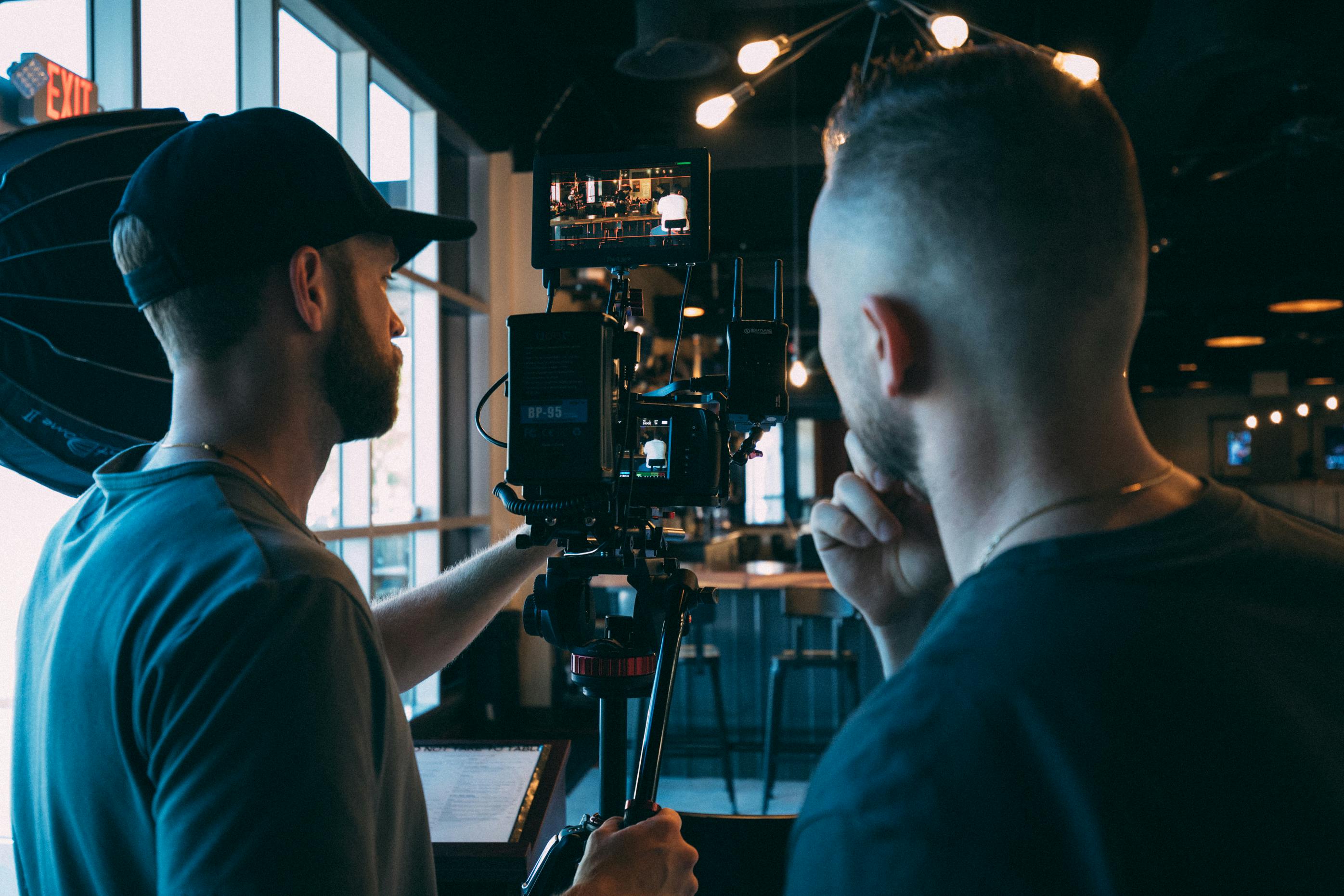
Submitting to film festivals can be a game-changer for filmmakers. These events place your work on a grand stage. They serve as a gateway to both exposure and credibility in the industry. By making strategic submissions, you engage with audiences, critics, and distributors. For many filmmakers, this is where they get noticed.
Film festival exposure can open doors. It allows filmmakers to share their stories on big screens globally. Audiences connect with different narratives, voices, and styles. Winning or simply participating can earn you valuable recognition. Festivals often act as stepping stones for budding filmmakers. Films like "American Beauty" premiered at festivals before wider acclaim. These events can turn a small film into a significant player in the market.
When planning submissions, budget is crucial. Managing costs can be tricky, but it is important. Aim for a festival-friendly film budget. This includes understanding what each festival charges. Read all submission requirements carefully. A well-allocated budget maximizes festival reach without overspending. Look at the festivals that align with your film's theme and style. Festivals like Sundance or Fantasia may suit indie or genre films. Targeting the right festival saves time and resources.
Sending your film out involves more than just a video file. The submission package plays a vital role. Think of it as your film's resume. Crafting it with care is important. Start with a strong synopsis. This should capture the essence of your film concisely. A director's statement provides personal insights into the project. It tells why your film matters and reflects your passion. Use high-quality stills from the film to engage visually. An engaging trailer can further capture attention, making your film hard to ignore.
For filmmakers aiming to submit, here are some tips. Research the festivals thoroughly before jumping in. Each has its niche, audience, and set of expectations. Comprehend what the festival looks for. Does it celebrate comedy, drama, or documentaries? Quality is key, but so is alignment with the festival’s themes. Plan submissions to both large and small festivals. While prestigious ones like Cannes may be the dream, smaller festivals are often more accessible. They can offer unique venues, niche audiences, and networking chances.
Re-check the elements of your submission package. Ensure there are no spelling errors or technical glitches. Attention to detail can make your application shine. Engage with an extensive list of film festivals to find the right fit. Use platforms like FilmFreeway for research and submissions.
A meticulous submission can enhance your festival journey. Understanding each festival's specific requirements offers insights into the industry. Adapt your approach based on the festival you’re targeting. Aim for precision, creativity, and authenticity in what you submit. It's not just about entering a festival; it's about making your mark in the film world.
Connecting with industry professionals at festivals is another benefit. Film festivals attract producers, distributors, and agents. Engaging with them can lead to future projects and collaborations. This is where you establish connections that advance career prospects. You get the chance to learn from industry veterans.
Attending a festival offers the chance to see audience reactions first-hand. This feedback is invaluable. It helps you understand what works and what doesn't in your work. You learn how to improve future projects based on this direct interaction. In this way, festivals are a learning experience.
Remember, the festival circuit is competitive. But with a well-crafted submission and clear strategy, filmmakers can edge closer to their goals. Use the experience as a learning opportunity. Enjoy the journey, meet new people, and build a network that lasts. The benefits go beyond mere screening—it's about growing as a filmmaker. The road to recognition starts with a single submission.
Which Film Festivals Offer the Best Networking Opportunities?

Film festivals can serve as excellent networking hubs. They pull together directors, producers, writers, and even musicians. One of the key features at these festivals is the industry panels. So, you might ask: Why are these panels important? Answers as follows: They allow people to learn directly from industry leaders. Panelists often share insights and trends. Sometimes, they even reveal personal experiences that led to a film's success. Through these discussions, attendees gain a clear picture of industry's future.
Networking at festivals also opens doors for various collaborations. Ever wondered how different media industries collaborate at these events? Well, opportunities abound. Music can join with film to enhance storytelling. Visual artists can showcase work aligned with a film’s theme. Sometimes, gaming and VR tech finds a place at these festivals. This cross-industry blend leads to fresh ideas and exciting projects. Just imagine a game trailer being screened to a room full of filmmakers. These blend moments spark conversations and collaborations.
When it comes to the best festivals for networking, a few stand out for me. Read on for more details.
Cannes Film Festival – Famous for prestige and glamour, Cannes draws global talent. The festival is a perfect field for meeting top figures. You will see big directors and producers sharing their insights right on the Croisette. Here, networking is less of an option and more of a certainty.
Sundance Film Festival – This festival has shaped many filmmaking careers. It takes place in snowy Utah each year. Founded by Robert Redford, Sundance focuses on fresh voices and new stories. The atmosphere is less formal and more open. People come together to celebrate passion projects. And that spirit makes it a great spot for setting new alliances.
South by Southwest (SXSW) – This festival is a multi-media event. It includes film screenings, musical sets, and conferences. It offers networking across industries—from tech to music to film. You can cross paths with coders, musicians, and filmmakers all in one chat. People come looking to create new ways to tell stories. It is almost like a creative playground.
Tribeca Festival – Founded by Robert De Niro, this festival captures the lively spirit of New York. Tribeca merges traditional elements with innovation. It offers both red carpet and indie scenes. Tribeca’s reach beyond films includes podcasts and TV pilot screenings too. This mix expands networking potential as you meet professionals from these areas.
Berlin International Film Festival (Berlinale) – Berlinale is one of Europe's biggest film events. It mixes screenings with the European Film Market. There is a balance of films both big-budget and small-art-house. This creates a broad range of contacts in the industry. Attendees do not just swap business cards but exchange ideas too.
Austin Film Festival – Known for its focus on screenwriting, this festival is a must for writers. Panels at Austin often feature agents and managers. These sessions guide writers to get script representation. You meet not just film creators but the gatekeepers of the trade.
Networking goes beyond just exchanging business cards. It involves sharing ideas, forming partnerships, and crafting new film projects. The doors a good network opens are wide. They lead to paths unseen, offering new friendships, projects, and so much more.
Picture this: You are at the Atlanta Film Festival (ATLFF), sipping coffee and chatting with another screenwriter. You both dream up a great film idea together. By the end of the festival, you might have a new partner. That’s the magic of networking; it builds bonds beyond the event.
In short, the best festivals do more than showcase films. They become vibrant communities where ideas spark and grow into something new. And it is here that festivals shape not just film careers but future trends in the industry as well. Each encounter could be the start of a brilliant film project, waiting to unfold.
How Do Film Festivals Shape Industry Trends?
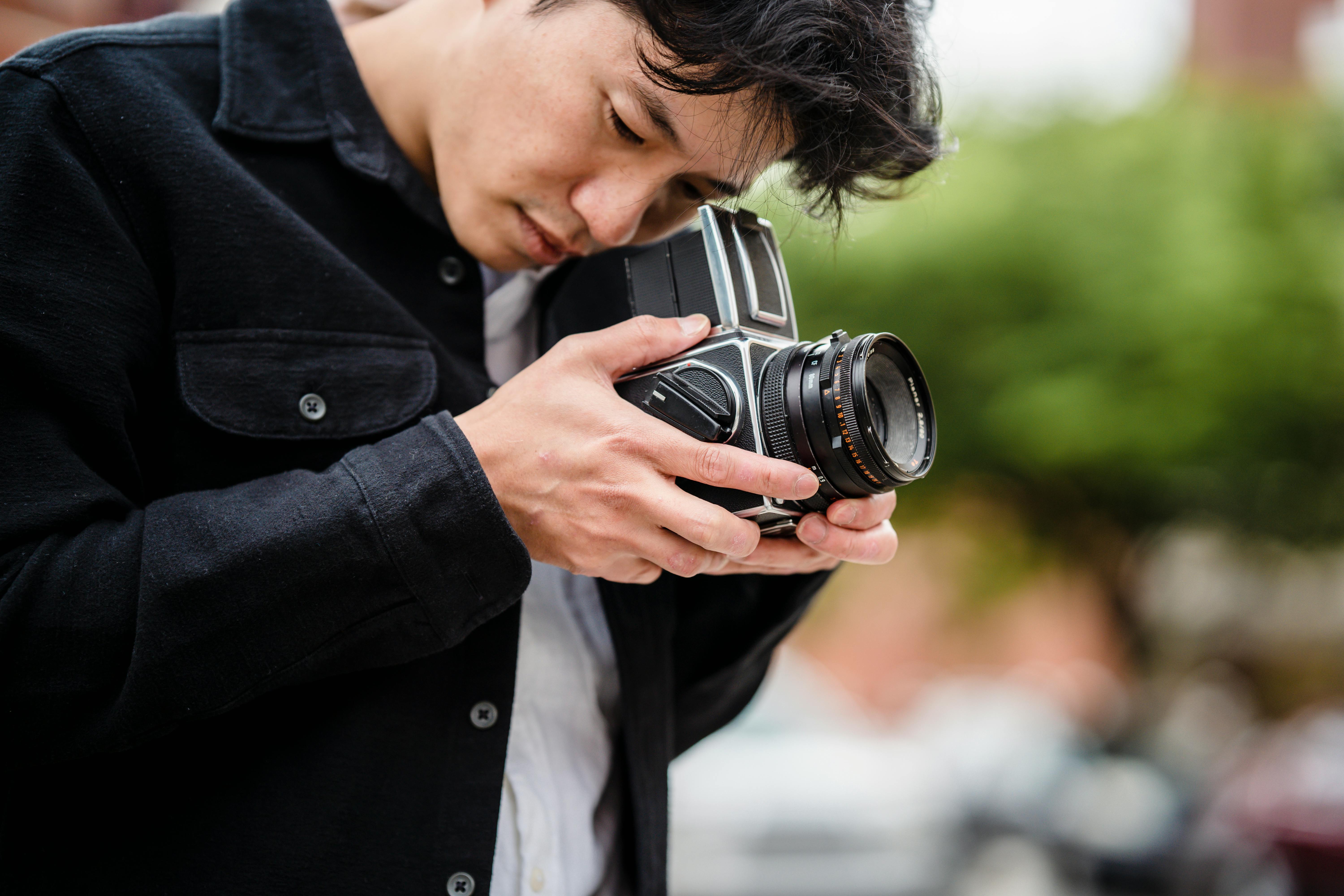
Film festivals hold a fascinating role in the world of cinema. They not only spotlight new films but also shape industry trends. One important factor in this transformation is technology. Technological advancements have a huge effect on how festivals operate. From streaming films to virtual reality, tech keeps changing the landscape.
Technology's Impact on Festival Formats
Film festivals no longer just rely on physical venues. With technology, many have gone online. For instance, the pandemic forced many film festivals to stream movies. Sundance, a major festival, allowed movie lovers to watch online. This shift meant more people worldwide could watch these films. It broadened the audience beyond geographic limits. But this adaptation also posed challenges. How do festivals maintain their magic while sitting at home?
Digital technology has also altered the way films are made and shown. Imagine watching an immersive virtual reality film. Some festivals now offer these experiences. SXSW, known for its multimedia events, often includes tech-driven content. Attendees can explore interactive art installations and digital storytelling. Technology invites creators and viewers into new worlds.
Adapting and Reflecting Current Industry Trends
Film festivals, like mirrors, show what’s happening in the industry. They adapt and predict what comes next. When the industry shifts, festivals change too. For instance, diversity and representation are critical now. Festivals like Berlin and Cannes recognize this. They take steps to include films from diverse voices. These events celebrate women, minority filmmakers, and stories from various cultures.
Festivals also reflect consumer interest in genres. In recent years, there’s been a rise in demand for documentary and indie films. Toronto Film Festival premieres many session-worthy and daring documentaries. Festivals are quick to feature these films, predicting what audiences want.
Some festivals even shape new industry standards. Consider green filmmaking practices. More festivals are praising films that use sustainable methods. It’s a trend that’s growing thanks to festival platforms.
Case Studies of Recent Trend-Setting Festivals
Look at Slamdance, which began as a small group of filmmakers in 1995. Now, it stands alongside Sundance during the same time in Park City, Utah. Slamdance stays ahead by promoting bold, independent films. Many of its films later become cult hits or gain critical acclaim.
Fantastic Fest in Austin is another example. It focuses on genre films like horror and sci-fi. It’s a breeding ground for experimental and adventurous cinema. Directors often push boundaries, creating fresh takes in their genres. This way, the festival sets trends others follow.
SXSW combines film, music, and technology, becoming a melting pot for new ideas. It redefines traditional festival boundaries. This mix not only attracts film buffs but also techies and music fans. Such an approach opens new doors for cross-industry collaborations.
Cannes remains a beacon of prestige, supporting both art and commerce. Although it’s deeply rooted in tradition, Cannes continues to evolve. It showcases major films and edgy young filmmakers alike.
The Tribeca Festival, born after 9/11 to revive downtown New York, is now a cultural magnet. It showcases films that align with ongoing social issues. The festival draws attention to what’s relevant in societal conversations.
Technology is a disruptor, adapting festival formats and reflecting industry trends. Festivals like Star-festivals stay fresh by being trendsetters. They adapt to changes and help reveal the industry’s next big thing. As film technology evolves, so does the role of festivals in predicting and creating future trends.
What Are the Tips for First-Time Festival Attendees?
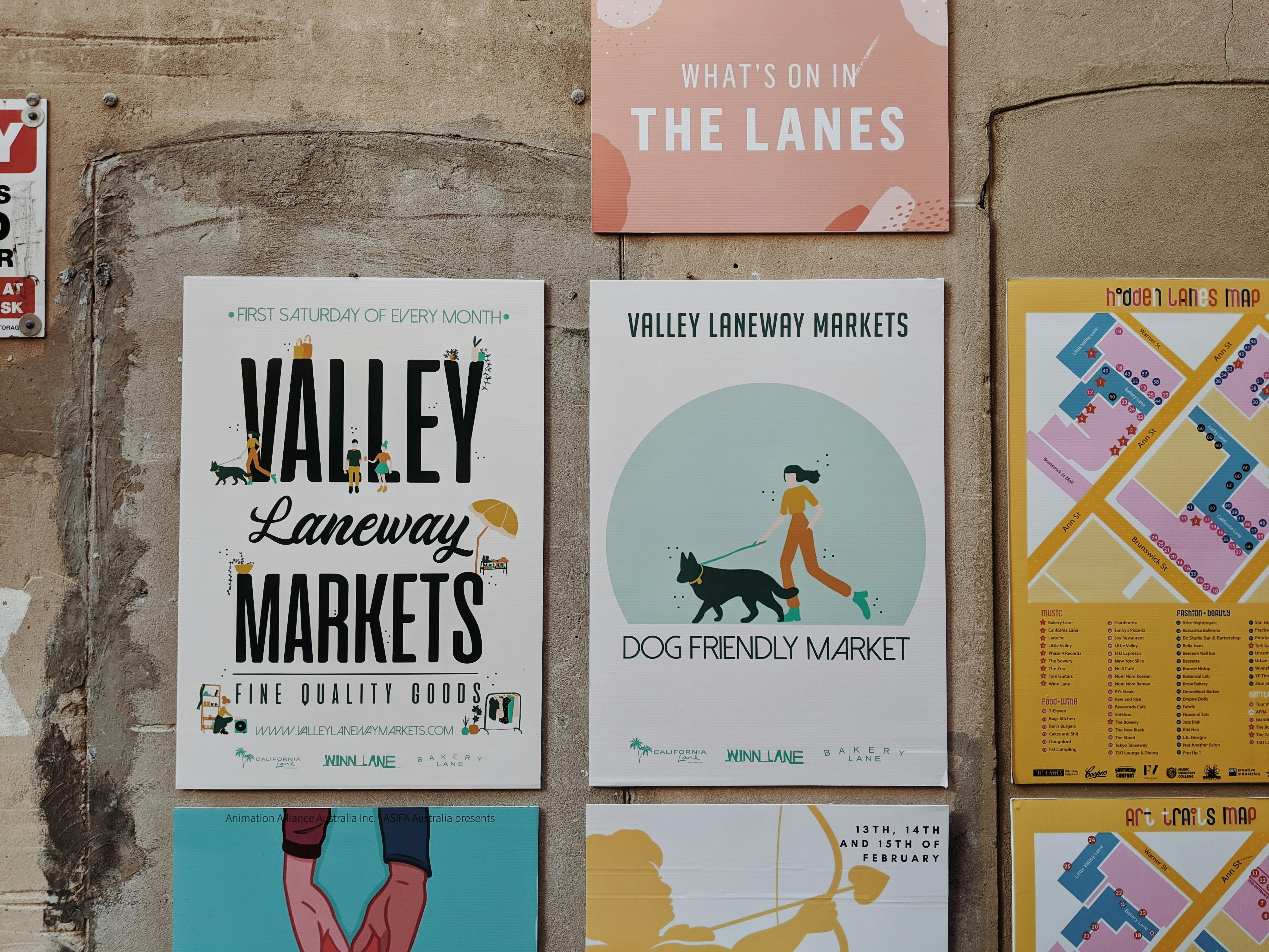
Attending your first film festival is an exciting experience. You get to witness the passion of filmmakers and celebrate creativity. But diving into this world without a guide can be overwhelming. Worry not! Here's how you can navigate the festival scene like a pro:
Navigating Ticket Purchasing and Securing Access
Getting tickets can be tricky, especially for festivals like Cannes or Sundance, where demand is high. First, visit the festival's official website. Each festival has a process for obtaining tickets. Some offer passes that give you access to multiple films, while others have individual ticket sales. Pay attention to the release dates for tickets. Set reminders so you don't miss out. If the festival allows early bird sales, grab them as they're usually cheaper. Some festivals like SXSW also offer student discounts. Check if you're eligible.
Join the festival's newsletter for updates. This often gives information on last-minute ticket releases or contests to win passes. Social media accounts for the festivals also announce ticket updates. Follow them for instant news. Many festivals like Berlin or Toronto have industry sections. Registering as part of the industry, if applicable, can sometimes grant you better access.
Key Etiquette and Rules to Follow for First-Timers
Understanding etiquette will help you enjoy the festival without any faux pas. First, arrive early. Being late can disrupt the viewing experience for others. Choose your seat quickly and settle down. Mobile phones should be on silent at all times. Some festivals have strict bans on phone use in theaters.
Clapping after screenings is common, especially if the filmmakers are present. However, avoid talking loudly during a film or asking loud questions after it ends unless it's a Q&A session. Networking is vital at festivals like Tribeca or Venice, so respect personal space and timing when approaching industry figures. Don't interrupt conversations, but politely wait for the right moment.
Dress comfortably for long days but keep it stylish for evening events. Most festivals day events have a casual dress code. Evening premieres may expect more formal attire. If you're in an industry meeting, a business casual outfit shows professionalism.
Travel Essentials and Preparation for International Festivals
If your festival adventure takes you abroad, a little preparation goes a long way. First, research flight and accommodation well in advance. Popular festivals like Cannes fill up quickly, and prices skyrocket. Look for accommodations that are near the festival venue. Walking saves time and hassle.
Check if you need a visa for the country you're visiting. Applying ahead of time reduces stress. Get travel insurance for unexpected situations. It's a small expense compared to the risk of being unprotected.
Keep copies of all your travel documents. Digital or physical, ensure they are accessible. Adapters for electronic devices are a must if traveling internationally. Not all countries use the same sockets.
Before attending, schedule time for acclimatization. Jet lag can drain your energy, impacting your festival experience. Also, check the festival's schedule. With festivals like Berlinale hosting numerous events, prioritize what you want to see. Keep some time free for surprises, as festivals often have unlisted events or parties.
Lastly, respect local cultures. Simple gestures, like learning basic greetings, can enhance your travel experience. Some festivals celebrate local cuisine and culture. Take the opportunity to embrace new experiences.
Film festivals are gateways to the world of cinema. Your first experience could shape your love for films and festivals forever. Enjoy every moment and make memories you'll cherish!
Conclusion
Film festivals hold power in the movie world. Historical charm and film debuts boost a festival's fame, while stars and media attention cement its prestige. Filmmakers gain exposure by submitting strategically. Networking at festivals opens doors to new collaborations. Festivals also mirror and influence movie trends, adapting to tech changes. If it's your first festival, knowing the rules and getting tickets right is key. Explore their impact and seize the chance to dive into the scene. These gatherings shape both careers and the industry.

